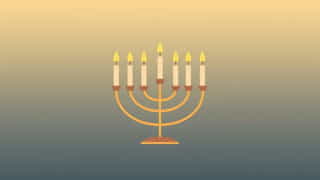Hanukkah is one of the most recognized Jewish holidays around the world, but for many, it still remains a mystery beyond the glowing candles and spinning dreidels. Understanding what Hanukkah is involves exploring its rich history, meaningful traditions, and spiritual depth. Often referred to as the Festival of Lights, Hanukkah commemorates an ancient miracle and celebrates themes of perseverance, identity, and faith. While it is not as religiously significant as other Jewish holidays like Passover or Yom Kippur, Hanukkah has grown in cultural importance, especially in Jewish communities outside of Israel. This topic will explain what Hanukkah is, its origins, traditions, and the deeper meanings it holds in Jewish life today.
Historical Background of Hanukkah
The Maccabean Revolt
Hanukkah traces its roots to events that took place over 2,000 years ago, during the second century BCE. At the time, the land of Judea was under the control of the Seleucid Empire, led by King Antiochus IV. He imposed harsh restrictions on Jewish religious practices and desecrated the Second Temple in Jerusalem by placing Greek idols inside.
A small group of Jewish rebels, known as the Maccabees, led by Judah Maccabee, rose up against the Seleucid rulers. Despite being outnumbered and under-equipped, the Maccabees succeeded in reclaiming the Temple. When they sought to rededicate it, they found only a small amount of oil to light the menorah just enough for one day. Miraculously, the oil lasted for eight full days, giving them enough time to prepare more sacred oil. This is the miracle Hanukkah commemorates.
Meaning of the Word ‘Hanukkah’
The word ‘Hanukkah’ comes from the Hebrew word × × ×××, which means dedication. It refers to the rededication of the Holy Temple in Jerusalem after it was reclaimed from foreign invaders. The name reflects both the physical act of reclaiming a sacred space and the spiritual renewal that the Jewish people experienced during that time.
Hanukkah Traditions and Symbols
Lighting the Menorah
The central ritual of Hanukkah is lighting the menorah, a special candelabrum with nine branches. Eight of the candles represent each night of Hanukkah, while the ninth, known as the ‘shamash’ or ‘helper,’ is used to light the others. Each night, one additional candle is lit until all eight are burning on the final night.
- First night: One candle is lit using the shamash.
- Subsequent nights: One additional candle is added each night.
- Final night: All eight candles are lit, creating a full and beautiful display of light.
The Dreidel Game
The dreidel is a four-sided spinning top, each side marked with a Hebrew letter: Nun, Gimel, Hei, and Shin. These letters stand for the phrase Nes Gadol Haya Sham, meaning A great miracle happened there. In Israel, the last letter is different Peh changing the phrase to A great miracle happened here.
Playing the dreidel is a traditional Hanukkah game often played with chocolate coins, nuts, or small candies. It brings joy to children and helps preserve the memory of the Hanukkah miracle in a fun way.
Traditional Hanukkah Foods
Food plays a central role in Hanukkah celebrations, especially dishes fried in oil, symbolizing the miracle of the oil. Some of the most common Hanukkah foods include:
- Latkes: Potato pancakes fried until golden brown, often served with sour cream or applesauce.
- Sufganiyot: Jelly-filled doughnuts, especially popular in Israel during Hanukkah.
- Dairy foods: Cheese and other dairy items also hold symbolic meaning related to the Hanukkah story.
Modern Hanukkah Celebrations
Public Menorah Lightings
In many cities around the world, public menorah lightings have become a popular way to celebrate Hanukkah. These events often include music, speeches, traditional foods, and community gatherings. Public displays of Jewish pride during Hanukkah have helped to foster a greater understanding of Jewish culture and religious freedom.
Gift-Giving Traditions
In modern times, especially in Western countries, Hanukkah has taken on some gift-giving customs, influenced by the proximity of Christmas. While traditionally not a gift-oriented holiday, families may give small presents or Hanukkah ‘gelt’ (coins) to children during the eight nights. This adaptation has helped make Hanukkah more engaging for young generations without losing its original meaning.
Spiritual Themes of Hanukkah
Light in the Darkness
Hanukkah is celebrated in the darkest time of the year, usually in December. The lighting of the menorah is a powerful metaphor for bringing light into darkness, both literally and spiritually. It serves as a reminder that hope, resilience, and faith can overcome great adversity.
Religious Freedom and Identity
Another central theme of Hanukkah is the fight for religious freedom. The Maccabees’ resistance against forced assimilation and the preservation of Jewish traditions resonate deeply in today’s world. Hanukkah inspires people to honor their identity and stand firm in their beliefs, even when they face opposition.
Common Misconceptions About Hanukkah
Many people mistakenly assume that Hanukkah is the ‘Jewish Christmas’ due to its timing in December and the presence of gifts. However, the two holidays are unrelated in both origin and purpose. Hanukkah is not one of the major religious holidays in Judaism and has its own unique set of customs, themes, and history.
Length and Timing
Hanukkah lasts for eight days and begins on the 25th day of Kislev in the Hebrew calendar. This means the dates vary each year in the Gregorian calendar, typically falling between late November and late December.
Why Hanukkah Matters
So, what is Hanukkah? It is a celebration of courage, faith, and cultural survival. It’s about remembering a miracle, honoring tradition, and sharing light in both literal and symbolic ways. From lighting the menorah and eating traditional foods to playing dreidel and embracing identity, Hanukkah continues to be a cherished holiday that connects Jewish people across generations and continents.
Whether you’re Jewish or simply curious about different cultures and religions, learning about Hanukkah opens the door to understanding resilience and the power of belief. The story of Hanukkah may have ancient roots, but its messages are timeless and universally inspiring.
